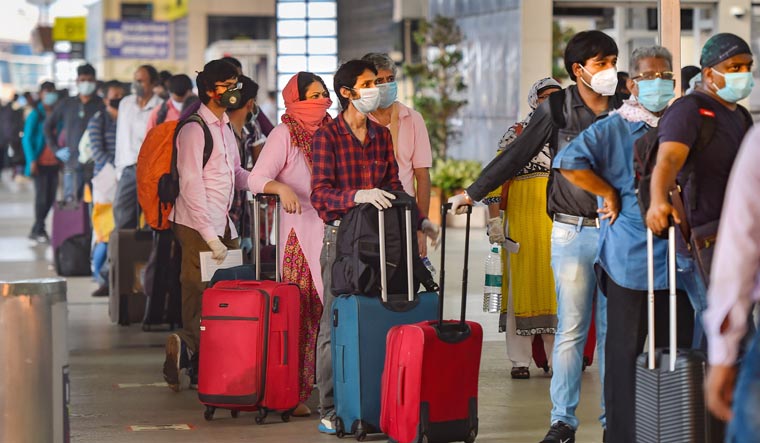The Covid-19 pandemic had hit the travel segment hard everywhere due to a prolonged lockdown and severe travel restrictions. With India setting into motion Unlock 1.0, travel aggregators and companies are hoping for a revival gradually as travel restrictions are eased and state borders are opened for passengers.
Though a complete return to normalcy is still a few months away, there are signs of revival in the segment and companies are embracing them. However, it still needs to be seen how there has been a psychological impact on people to restrict their unimportant travels and holidays, despite easing of the lockdown. Essentially, business and leisure travels would need more time to come back to normalcy.
“At present, non-essential travel is mostly avoided by people. If we see the domestic air travel segment, there are a lot of changes in air travel rules. A lot of precautionary health measures are in place from arriving at the airport till the time of boarding the airplane. The number is gradually increasing and it is going to grow once we see more reduction in lockdown restrictions. Airlines and travel operations are announcing discounted prices for air fares and travel packages. In the future, luxury and budget hotels might come up with reduced prices to attract more customers and increase the number of footfalls. However, this might take a little long since tourists in both luxury and budget categories are yet to decide their next travel destinations,” said Arupjyoti Gogoi, travel blogger and Youtuber at Tripglobally.com
Recently, Paytm Travel saw a sudden surge in bookings with around 60,000 flight and train bookings in the last one week as citizens headed back home with the easing of the lockdown. The company noted that most of the tickets booked for flights as well as trains were by citizens heading back from metro cities to their hometowns in tier-II and tier-III cities across the country.
Representatives from Paytm Travel said that a few sectors such as Delhi-Patna, Mumbai-Varanasi and Bengaluru-Guwahati witnessed high demand as compared to typical busy routes such as Delhi-Mumbai and Bengaluru-Delhi.
The company has seen close to 3,000 train tickets getting booked daily in the last seven days. It had also witnessed a large number of train bookings by migrants who were heading back to their home towns in Bihar, Telangana, West Bengal and Uttar Pradesh, among other states. Some of the popular train routes were New Delhi-Kanpur, New Delhi-Prayagraj and Guntur-Secunderabad, among others.
“The flight and train search volume on Paytm Travel in the last one week has been trending at close to 200 per cent of the average daily search volume witnessed before the lockdown began in March. Since the bookings opened up, we have witnessed over 85 lakh searches for flight and train tickets with a surge in demand happening over the weekend. The searches hit a peak of 1.77 lakh requests per hour during the weekend. The pent up demand still remains for non-metro routes from metro cities as eager travellers are booking tickets to go back home. For Delhi, Mumbai, Bengaluru as the origin cities, we are witnessing a large number of bookings for destinations such as Patna, Guwahati, Varanasi, Bhubaneswar, Bagdogra, Lucknow and Ranchi, among others,”said Abhishek Rajan, Senior Vice President, Paytm Travel.
On the other hand, bus aggregator Abhibus.com is working with the state and private operators to find ways of mutual survival. “We had launched new products such as train-booking, free cancellation during the pre-lockdown period that helped our customers. We have been positively dedicating this time to do more tech innovations and making efforts to prepare for a better customer experience when things resume. It has helped us make futurist products post lockdown and at the same time, we have provided valuable data insights to the government to help them plan the Unlock 1.0 strategy,” remarked Rohit Sharma, Chief Operating Officer, Abhibus.com.
He says though things are gradually reviving, fixed costs such as insurance, permits and taxes have not been waived off, which is hitting the private operators hard. “Many smaller bus operators have decided that they would rather stay grounded than risking margins that were already challenged by alternative seat blocking and other Covid-19 hygiene-related costs with no sight of fare hike. Therefore, it is inevitable that many private bus operators will either go bankrupt or will shut shop if they don’t get a structured survival plan by their respective state governments,” added Sharma.
The job scene in the segment has also not revived and is still a challenging scenario, though things may change gradually as things are opening up with the ease in lockdown. “Travel segment is opening up. We need customer confidence to be restored. Going by the rising number of Covid-19 positive cases, I anticipate that many people would be hesitant to undertake travel unless it is an absolute must. It will take 4-6 months until normal volumes of travel are restored. Until then, jobs in the sector would continue to remain under stress. 20-30 per cent of people at the bottom of the pyramid of each organisation in travel, tourism and hospitality would continue to be out of work. They would have to find alternate sources of livelihood until then,” said Aditya Narayan Mishra--Director and CEO of CIEL HR Services.



